What is Solana?
Solana is a layer-1 blockchain that utilizes a combination of two consensus mechanisms: Proof of History (PoH) and Proof of Stake (PoS). This unique setup allows Solana to process thousands of transactions per second at a low cost. It is the world’s first web-scale blockchain, designed to support widespread adoption in various fields such as payments, NFTs, gaming, and numerous other applications.
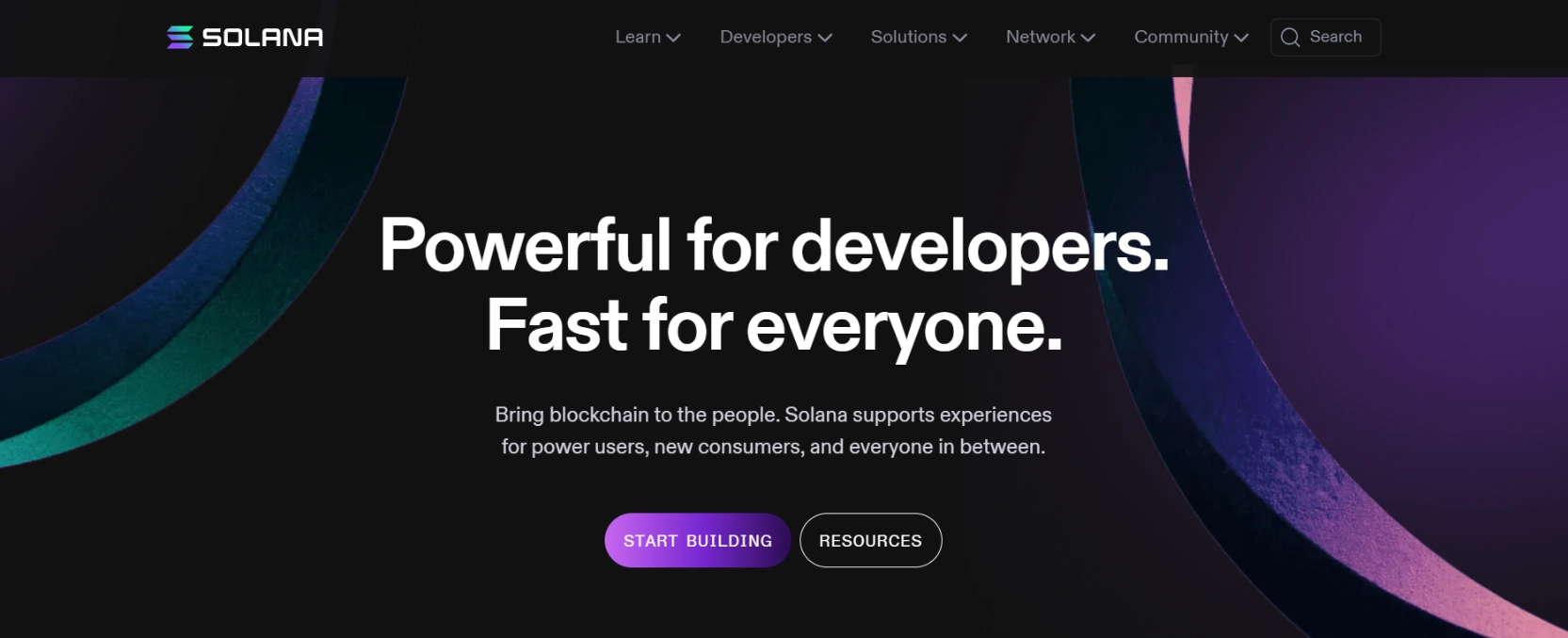
Solana began its development in 2017 and officially launched in 2020 with the ambition to solve the blockchain trilemma—a problem that Bitcoin and Ethereum faced at that time. By implementing the PoH and PoS consensus mechanisms simultaneously, Solana has significantly enhanced scalability and transaction speeds, reaching up to 65,000 TPS with a fee as low as $0.00025 per transaction. Consequently, Solana is considered a high-performance blockchain with the potential to replace Ethereum in the future, often referred to as a new generation “Ethereum Killer.”
In addition, Solana provides a robust infrastructure, including an SDK toolkit and smart contracts, facilitating developers to build DApps on its ecosystem. Due to its fast transaction processing at low costs, projects related to DeFi, NFTs, and gaming on Solana have garnered significant interest from the community.
How Solana Works
To achieve its high performance, Solana integrates several advanced and unique technologies. Below are its eight core technologies:
Proof of History (PoH)
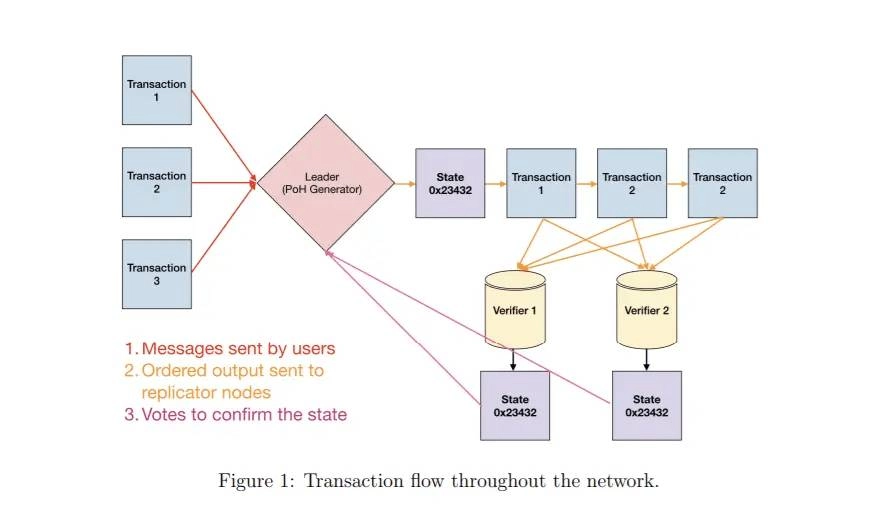
PoH is a consensus mechanism that creates a synchronized timeline to verify transactions quickly and efficiently. It uses a cryptographically secure time series to prove the time elapsed between two transaction events, utilizing the SHA-256 hash function similar to Bitcoin. However, unlike Bitcoin, Solana does not use a Verifiable Delay Function (VDF) for randomness generation; instead, each validator node in the network has its own VDF.
Tower Byzantine Fault Tolerance (BFT)
Tower BFT is a variant of the Practical Byzantine Fault Tolerance (pBFT) consensus algorithm, using PoH as a cryptographic clock. Tower BFT optimizes PoH to achieve consensus without requiring extensive communication between nodes.
Turbine
Turbine is a data sharding mechanism that makes data transmission to nodes more efficient. Instead of sending data in large blocks, Solana breaks it down into smaller packets, improving transmission efficiency and reducing bandwidth usage.
Gulf Stream
In the block production process, the next network leader is determined based on the number of tokens they have staked. Clients and validators can preemptively forward transactions to the expected network leader, enabling faster transaction confirmations, quicker leader changes, and reducing the memory pressure from unprocessed transactions.
Sealevel
Sealevel is a transaction processing engine that enables parallel transaction execution across multiple GPUs and SSDs, making Solana the only blockchain capable of processing non-overlapping transactions concurrently on a single shard.
Pipelining
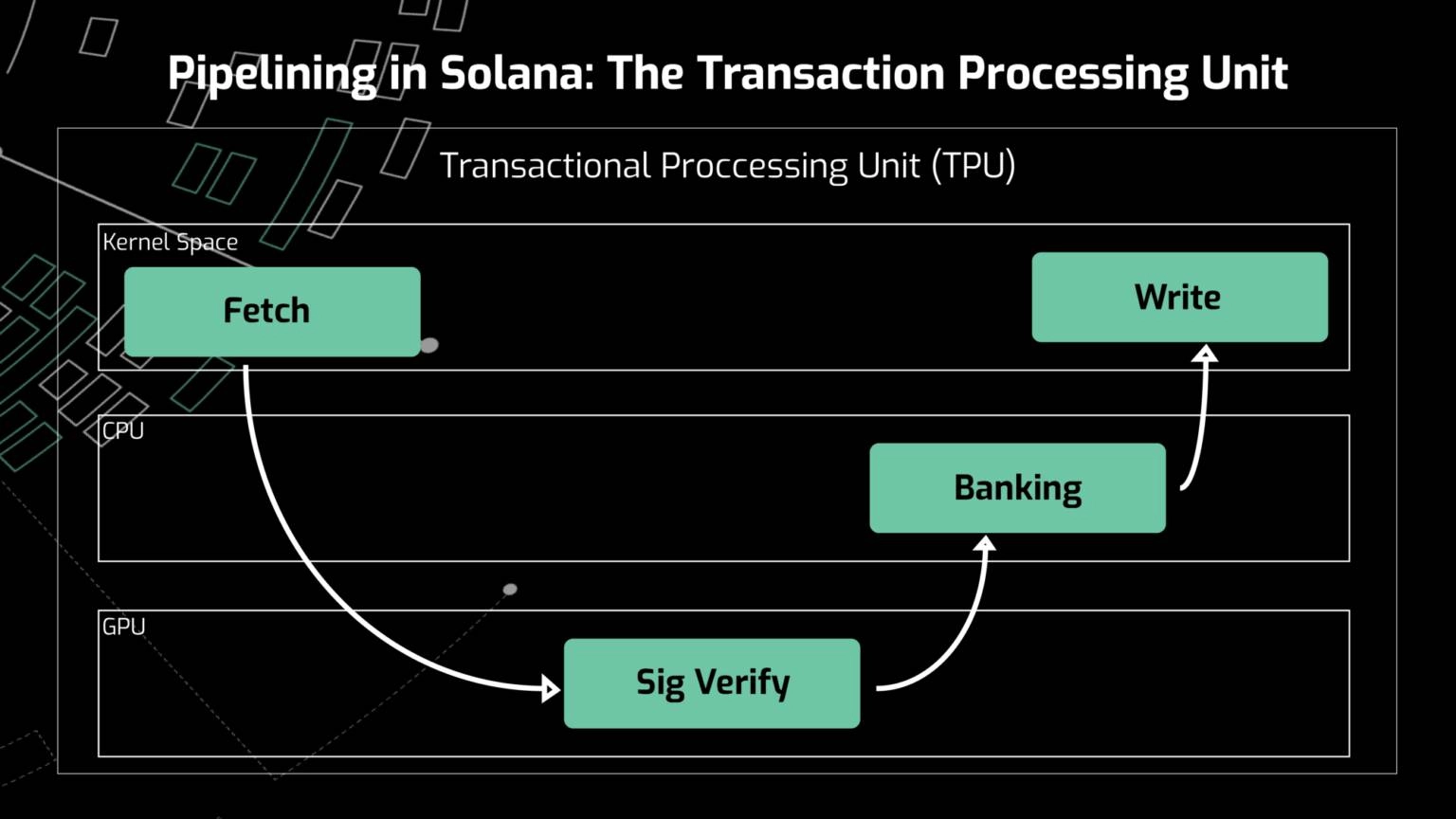
Pipelining is an optimization technique used in CPU design, widely implemented in transaction validation on the Solana network. It ensures that every part of the hardware is effectively utilized, from data fetching and signature verification to data writing.
Cloudbreak
Cloudbreak is designed to optimize concurrent reads and writes on a RAID 0 SSD configuration. In a distributed system, tracking accounts can be challenging due to memory and access speed limitations, but Cloudbreak solves this by increasing storage capacity and the number of simultaneous read and write operations.
Archivers
Archivers are responsible for storing data from validators and distributing it across the network’s nodes. On Solana, each node can replicate blockchain information based on the available storage on its hardware, ensuring the integrity and availability of data across the network.
Highlights of Solana
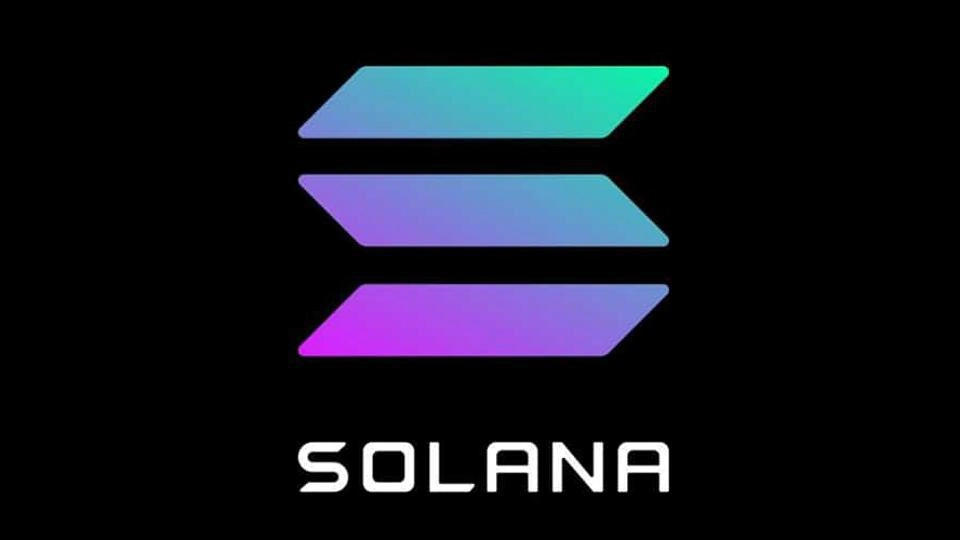
- Superior Throughput and Scalability: With the ability to process up to 65,000 transactions per second, Solana is an ideal platform for developers needing a blockchain with high transaction speeds and scalability for decentralized applications (DApps).
- Low Transaction Fees: Solana stands out with very low transaction fees, making it favorable for both developers and users, especially for DApps requiring frequent transactions.
- Energy-Efficient Consensus Mechanism: By using the Proof-of-Stake (PoS) consensus mechanism, Solana is not only environmentally sustainable but also energy-efficient, reducing the need for computational power.
- Robust Smart Contract Support: Solana provides comprehensive support for smart contracts, allowing developers to build complex DApps on its blockchain, particularly with the Rust programming language.
- Fast Finality: Solana ensures quick transaction finality, making it optimal for high-frequency transactions and DApps requiring fast confirmation times.
Team
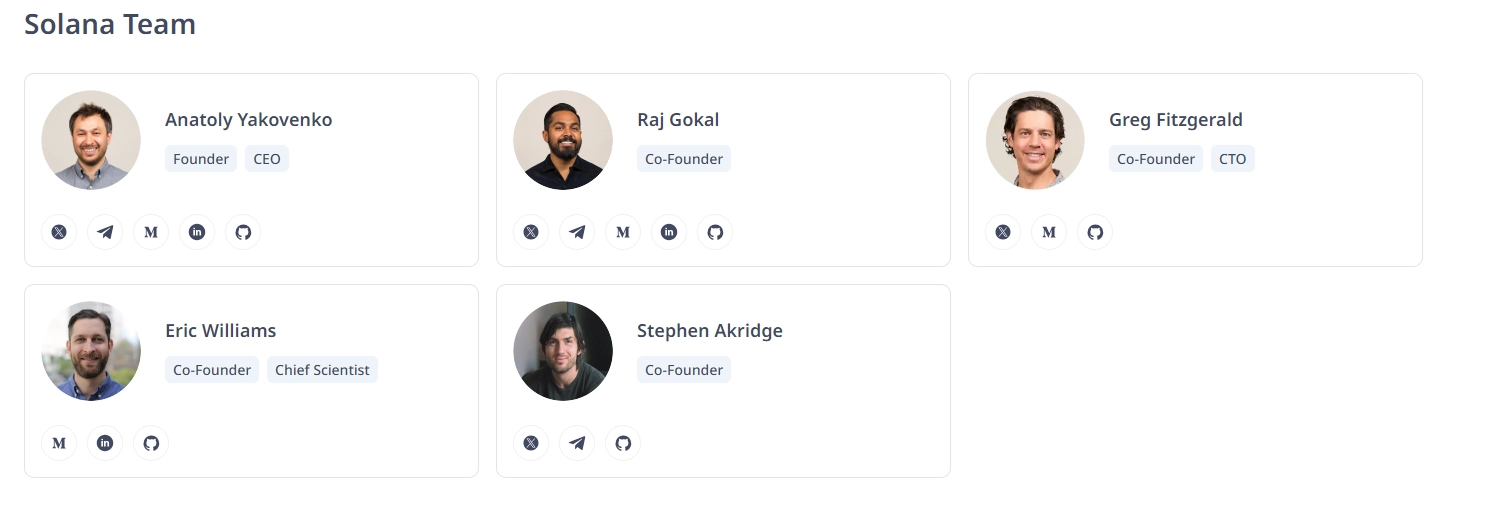
- Anatoly Yakovenko (CEO): Before founding Solana, Anatoly was a software engineer at Dropbox and Mesosphere and served as a Senior Engineering Manager at Qualcomm Boulder. He also co-founded Alescere.
- Greg Fitzgerald (CTO): Greg was a senior software engineer at Qualcomm Boulder and has experience working at Alescere as a systems software engineer.
- Raj Gokal (COO): Raj was a venture capitalist at General Catalyst and held the role of Product Manager at Odama Health. He was also an entrepreneur-in-residence at Rock Health and CEO/co-founder of Sano.
- Eric Williams (Chief Scientist): Eric was the Chief Data Officer and co-founder at Motion, Vice President of Data Science and Analytics at Odama Health, and a researcher at CERN.
- Stephen Akridge (Co-Founder): Stephen has over 9 years of experience working at Qualcomm, a leading company in chip manufacturing for phone brands, where he managed engineering teams.
Investors
According to CryptoRank, Solana has successfully raised nearly $334 million through two funding rounds.
- July 30, 2019: Solana Labs raised $20 million with participation from nine major investment funds such as Multicoin Capital, Slow Ventures, and others.
- June 9, 2021: Solana Labs secured a record-breaking $314 million in another funding round. This round saw the involvement of 21 investment funds, led by Polychain and A16Z, along with contributions from Multicoin Capital, ParaFi Capital, SeaX Ventures, Jump Trading, Genesis One Capital, and others.
Additionally, Solana raised approximately $15 million through ICOs, pre-sales, and private sales.
Solana Ecosystem
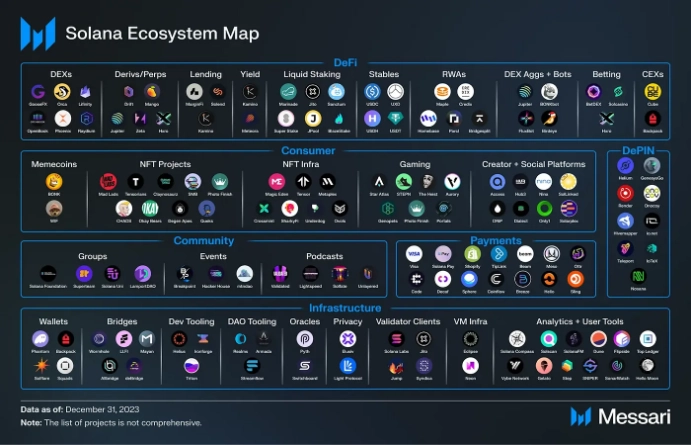
In 2023 and 2024, Solana emerged as one of the most dynamic and rapidly growing ecosystems. Despite facing challenges following the collapse of FTX, which led to many projects leaving, Solana has continued to attract new developers and projects through Hackathons and Hacker House events. These activities have maintained and ignited creative energy across the ecosystem, with the end of 2023 and the beginning of 2024 witnessing the rewarding results of Solana’s relentless efforts.
- The Rise of Meme Coin $BONK: This meme coin experienced significant growth, sparking a meme trend on Solana.
- Depin Projects Migrating to Solana: Thanks to its platform advantages, many Depin projects have chosen Solana as their main blockchain.
- $JTO Airdrop: The $JTO airdrop event triggered a point trend within the ecosystem, helping Solana attract more value.
- Solana Mobile Revival: After a long period of sluggish sales, Solana Mobile made a strong comeback. The new Solana Mobile 2 version received over 100,000 pre-orders within a month.
Currently, Solana has completed the basic components of its ecosystem and is focusing on developing unique features that can only be found on Solana, helping to maintain and solidify its position on the global blockchain map. The total value locked (TVL) in its ecosystem has surged from $500 million in October 2023 to $5.4 billion in August 2024.
Similar Projects
Solana is a Layer 1 project, similar to Ethereum, Avalanche, Near, and others.
Related: What is Near Protocol? Information about Token NEAR
What is SOL Token?
After understanding what Solana is, here are five key facts about SOL Token you should know before investing in Solana.
Basic Information about SOL Token
- Token Name: Solana
- Token Symbol: SOL
- Blockchain: Solana
- Smart Contract: N/A
- Price: $160 (as of August 26, 2024)
- Market Cap (MC): $74 billion
- Fully Diluted Valuation (FDV): $92 billion
- Total Supply: 583,041,175 SOL
- Max Supply: N/A
- Circulating Supply: 466,043,509 SOL
SOL Token Allocation
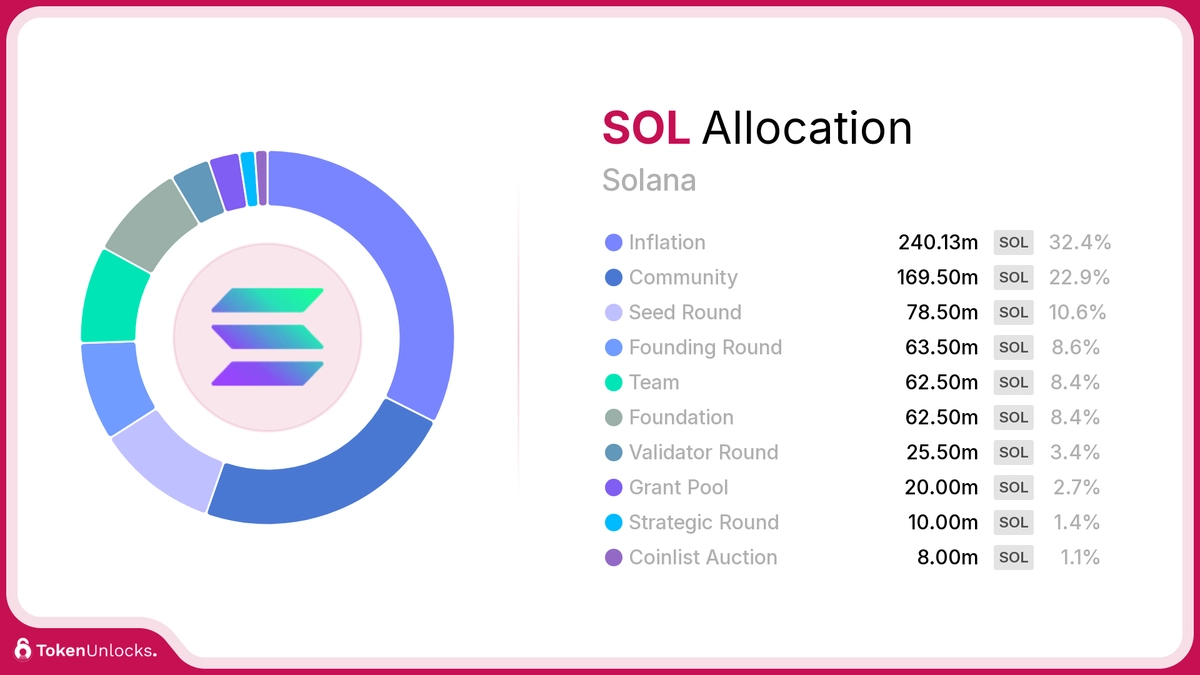
SOL Token Release Schedule
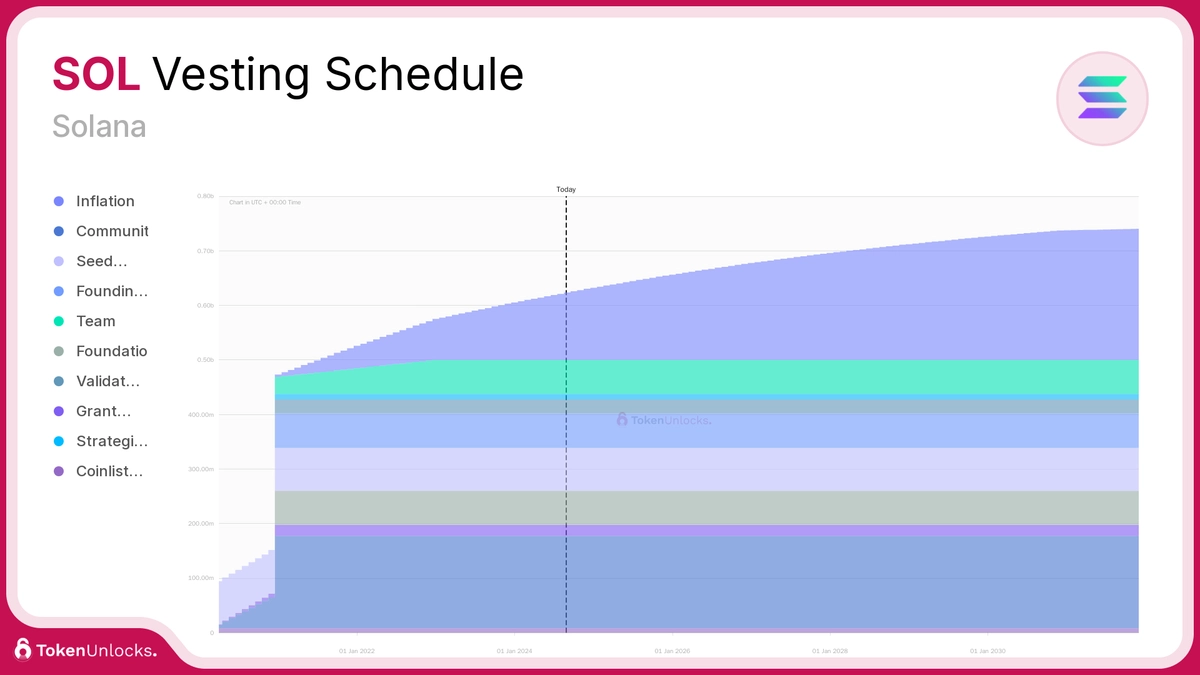
SOL Token has gone through a high inflation phase and is currently maintaining a low inflation rate.
SOL Token Use Cases
The SOL token is the native token of the Solana ecosystem, with the following primary uses:
- Fee Payment: SOL is used to pay various fees within the Solana blockchain network, such as transaction fees, smart contract fees, etc.
- Staking Rewards: SOL is used as a reward for stakers and nodes to ensure the stable operation of the network.
- Governance: In the future, SOL will be used for voting in network governance decisions.
Where to Trade SOL Token?
SOL tokens are currently traded on most major exchanges such as Binance, OKX, ByBit, and others.
Personal Opinion on Solana (SOL)
Solana is a well-established project that has gone through many market fluctuations and has even faced the risk of being eliminated. However, Solana has risen strongly, becoming a formidable competitor to Ethereum. The project has the potential to receive ETF approval in 2024, possibly leading to a significant increase in SOL token prices.
Investing in Solana in 2024 is a potential opportunity, but you should consider both the benefits and risks before making your decision.
Conclusion
Solana has made significant strides and proven its position in the global blockchain space. It has consistently demonstrated innovation, high transaction speed, and low costs, making it a strong contender in the blockchain world. With ongoing developments and an ever-expanding ecosystem, Solana is poised to continue its growth trajectory, making it a compelling project to watch and consider for investment.
 OMN
OMN  BTC
BTC  ETH
ETH  USDT
USDT  XRP
XRP  BNB
BNB  SOL
SOL  USDC
USDC  TRX
TRX  DOGE
DOGE 
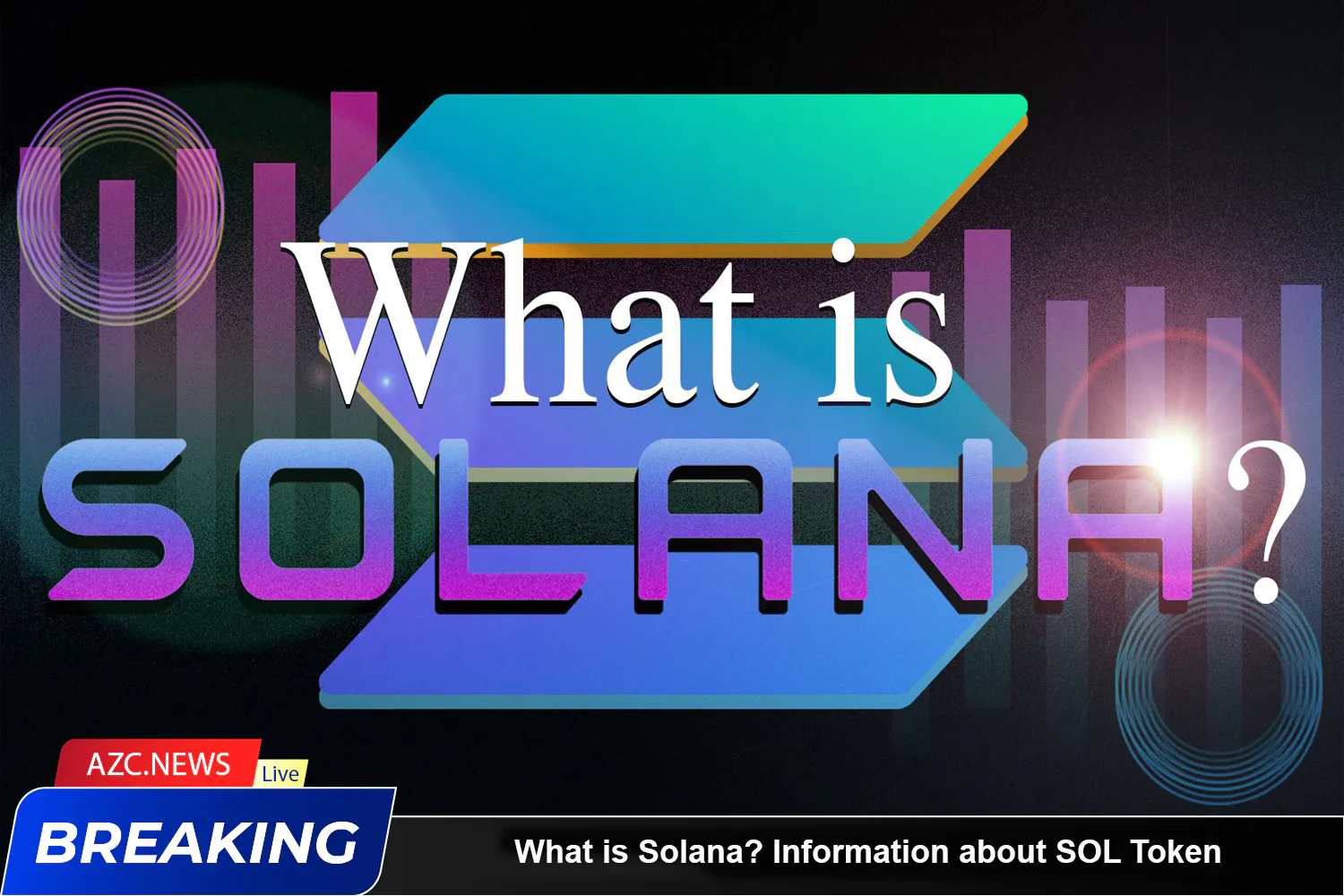
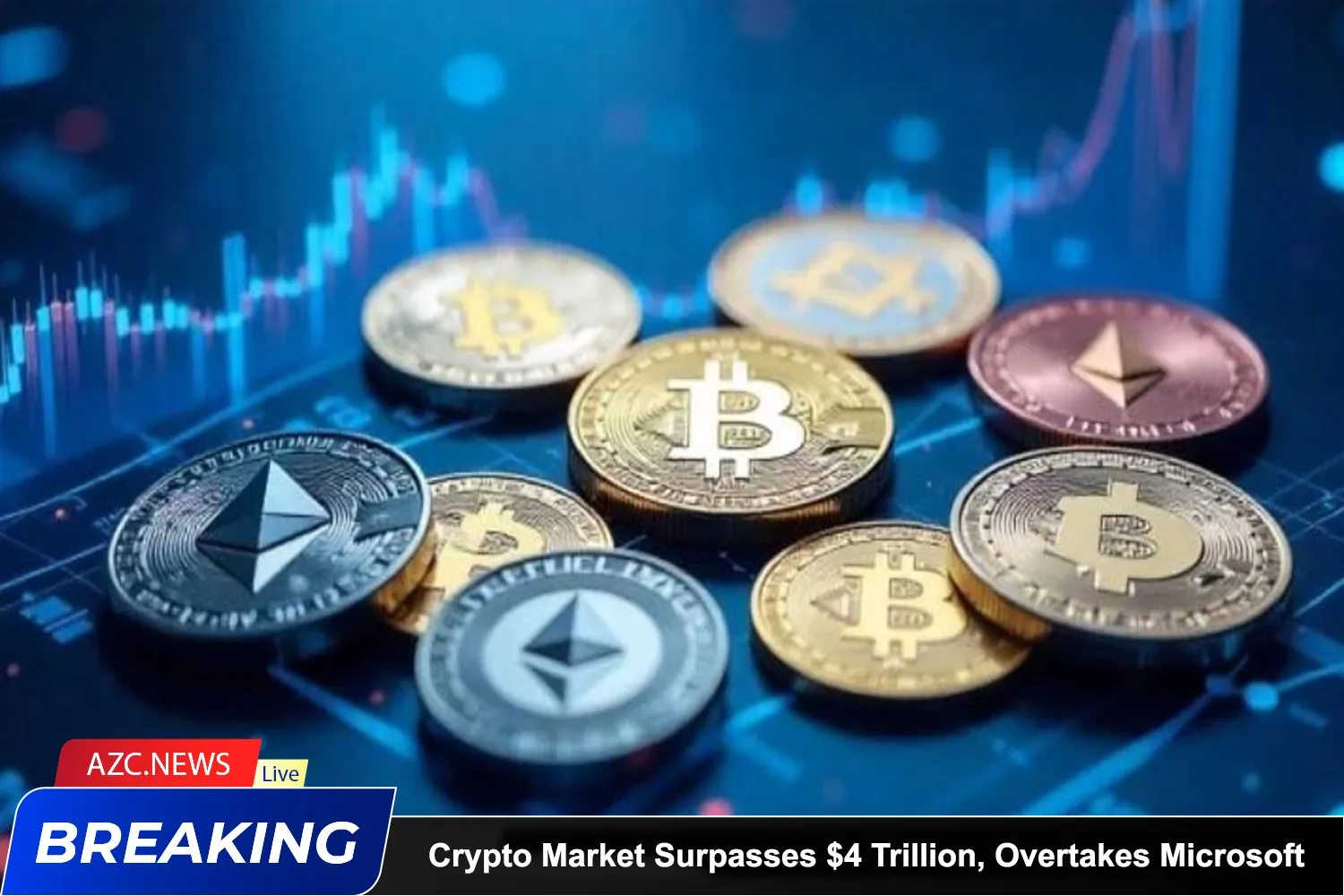
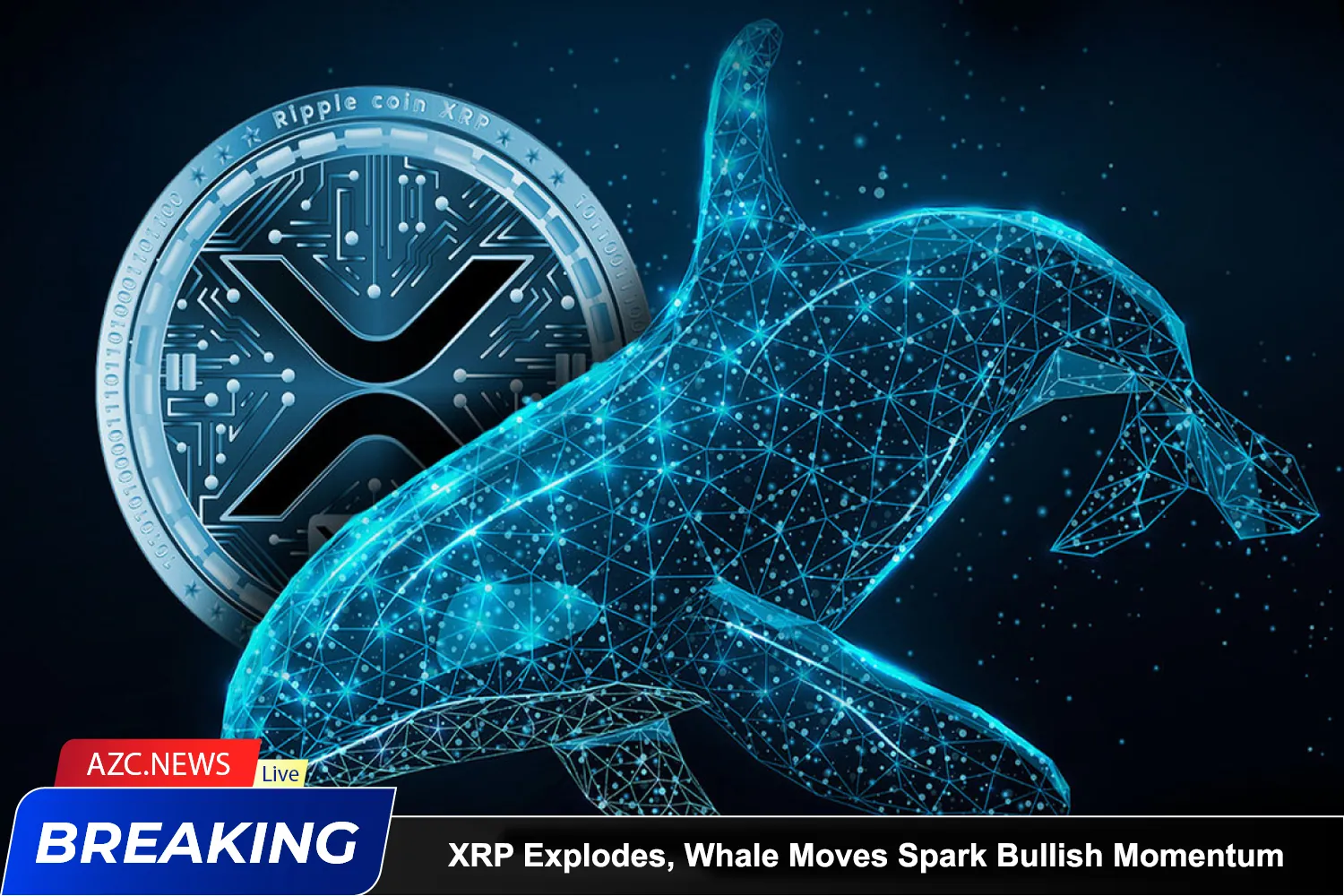
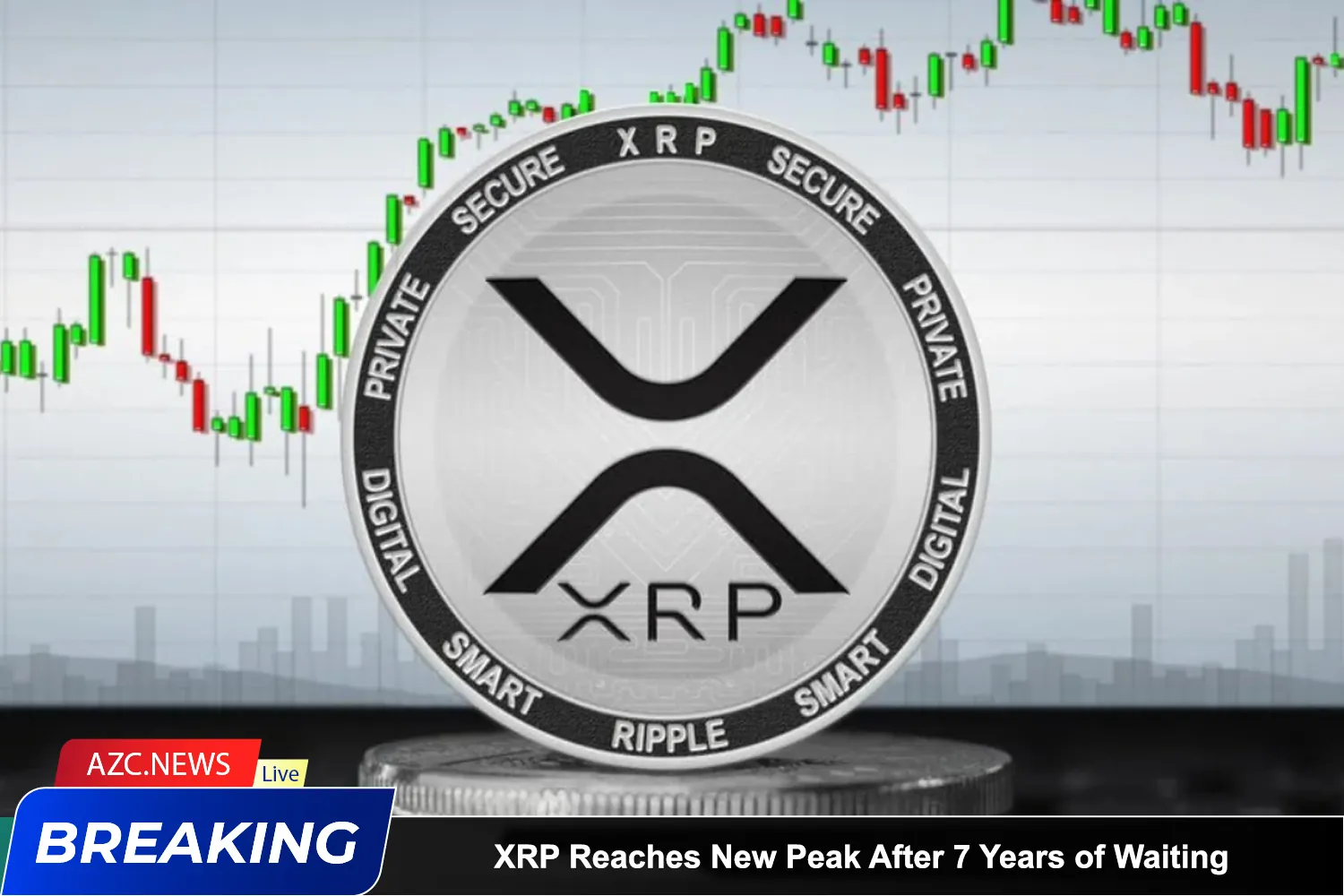
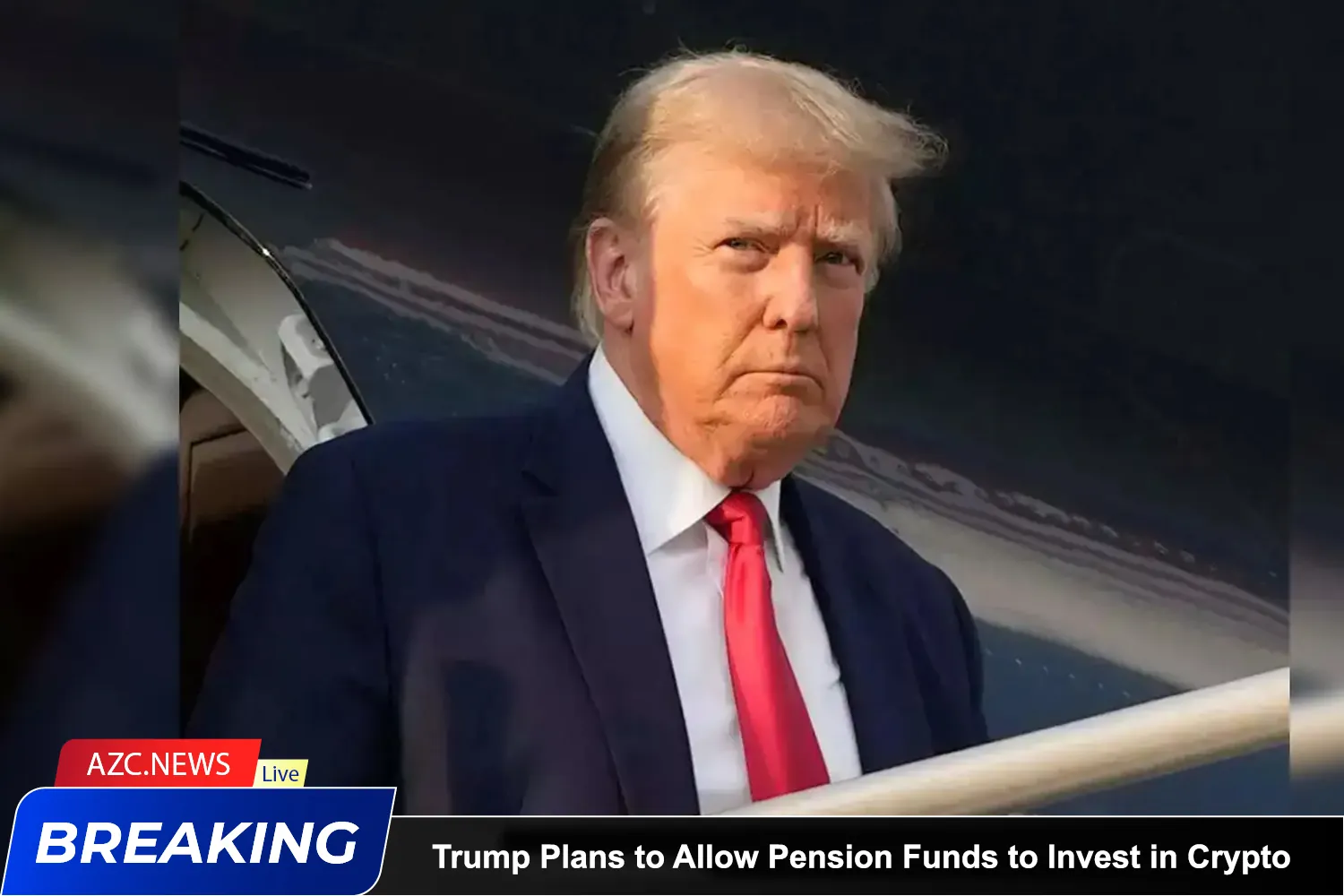
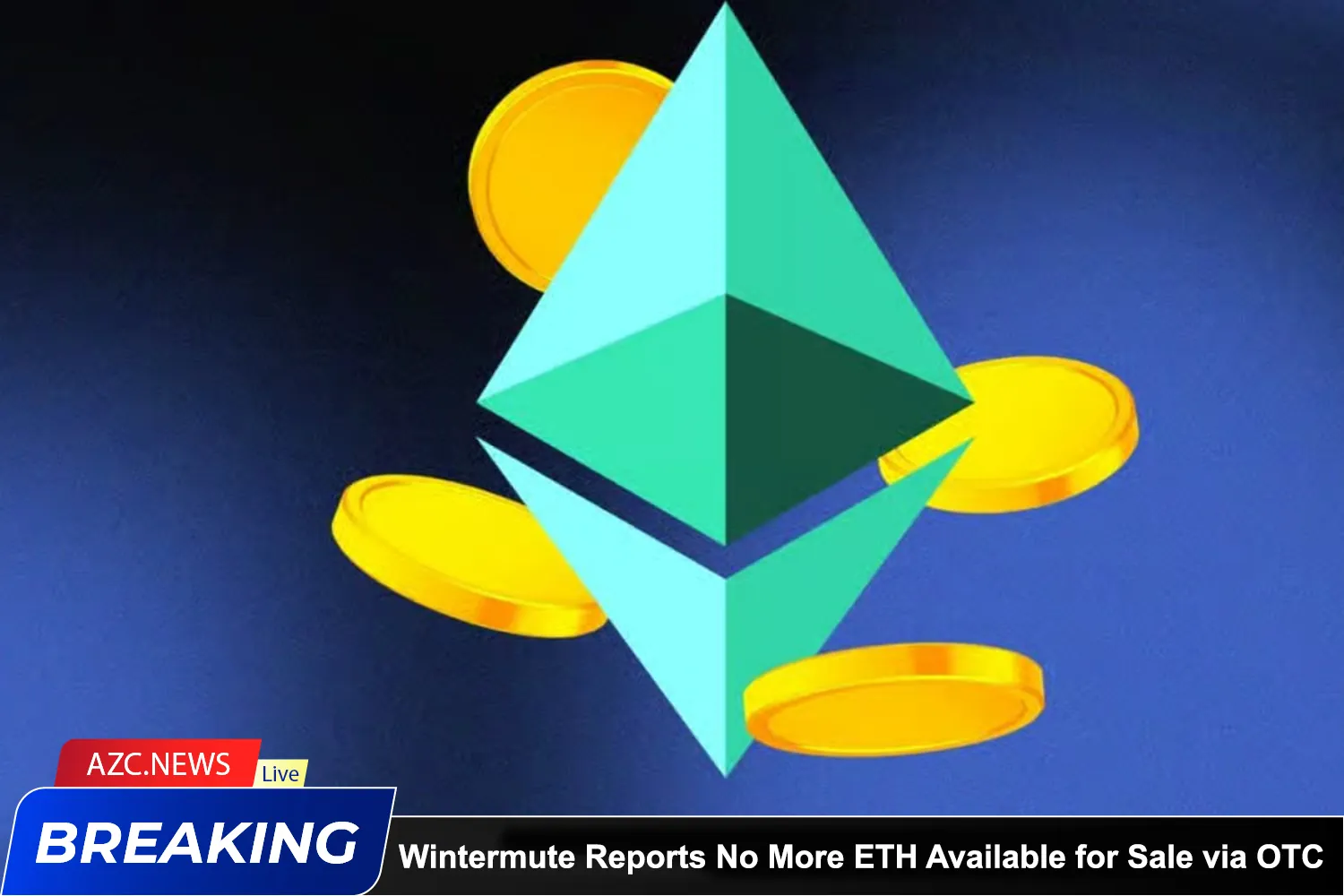
I LOVE ❤️ SOLANA.